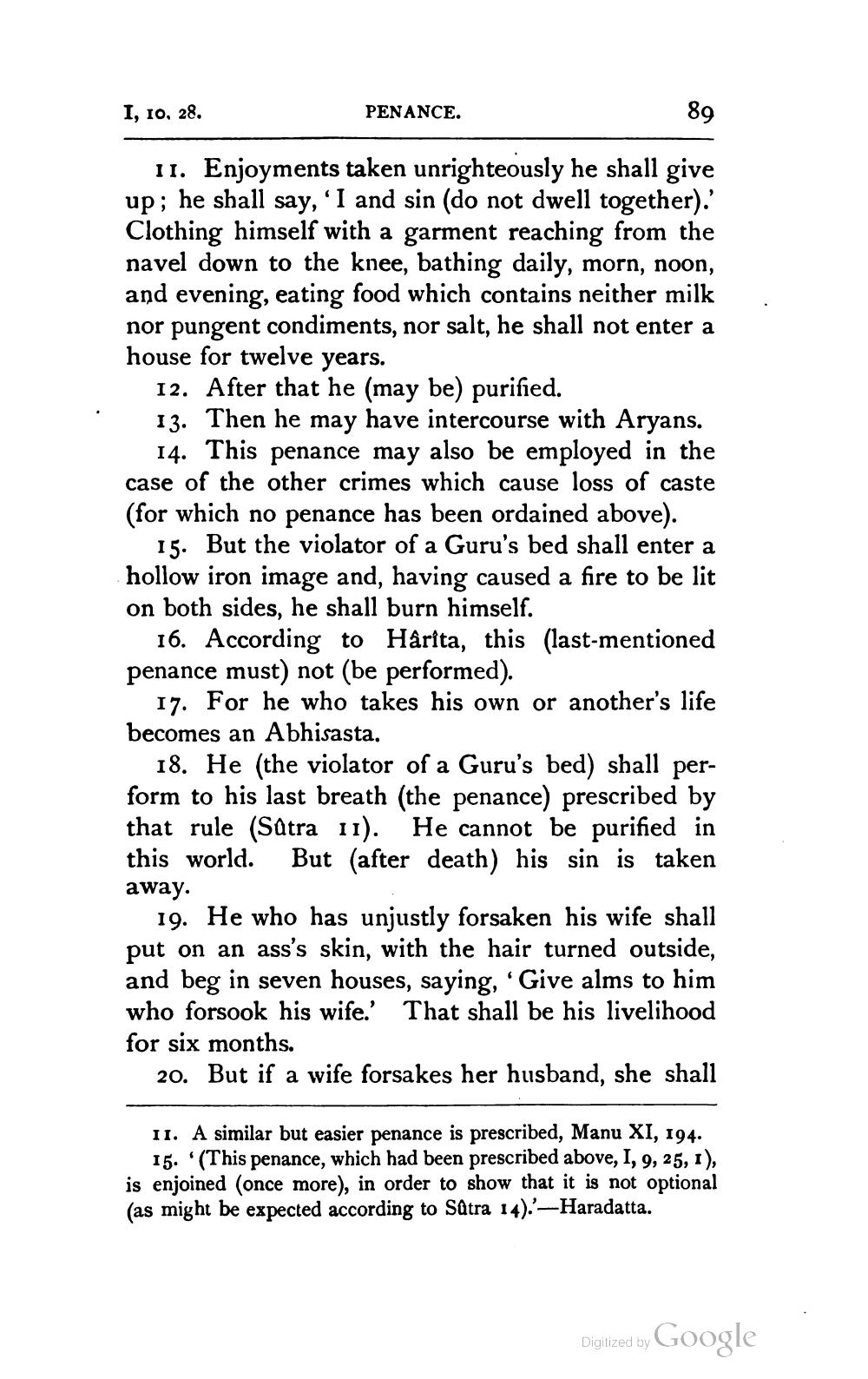________________
I, 10, 28.
PENANCE.
11. Enjoyments taken unrighteously he shall give up; he shall say, 'I and sin (do not dwell together).' Clothing himself with a garment reaching from the navel down to the knee, bathing daily, morn, noon, and evening, eating food which contains neither milk nor pungent condiments, nor salt, he shall not enter a house for twelve years.
12. After that he (may be) purified. 13. Then he may have intercourse with Aryans.
14. This penance may also be employed in the case of the other crimes which cause loss of caste (for which no penance has been ordained above).
15. But the violator of a Guru's bed shall enter a hollow iron image and, having caused a fire to be lit on both sides, he shall burn himself.
16. According to Hârita, this (last-mentioned penance must) not (be performed).
17. For he who takes his own or another's life becomes an Abhisasta.
18. He (the violator of a Guru's bed) shall perform to his last breath (the penance) prescribed by that rule (Satra 11). He cannot be purified in this world. But (after death) his sin is taken away.
19. He who has unjustly forsaken his wife shall put on an ass's skin, with the hair turned outside, and beg in seven houses, saying, 'Give alms to him who forsook his wife.' That shall be his livelihood for six months.
20. But if a wife forsakes her husband, she shall
II. A similar but easier penance is prescribed, Manu XI, 194.
15. (This penance, which had been prescribed above, I, 9, 25, 1), is enjoined (once more), in order to show that it is not optional (as might be expected according to Satra 14).'-Haradatta.
Digitized by Google




